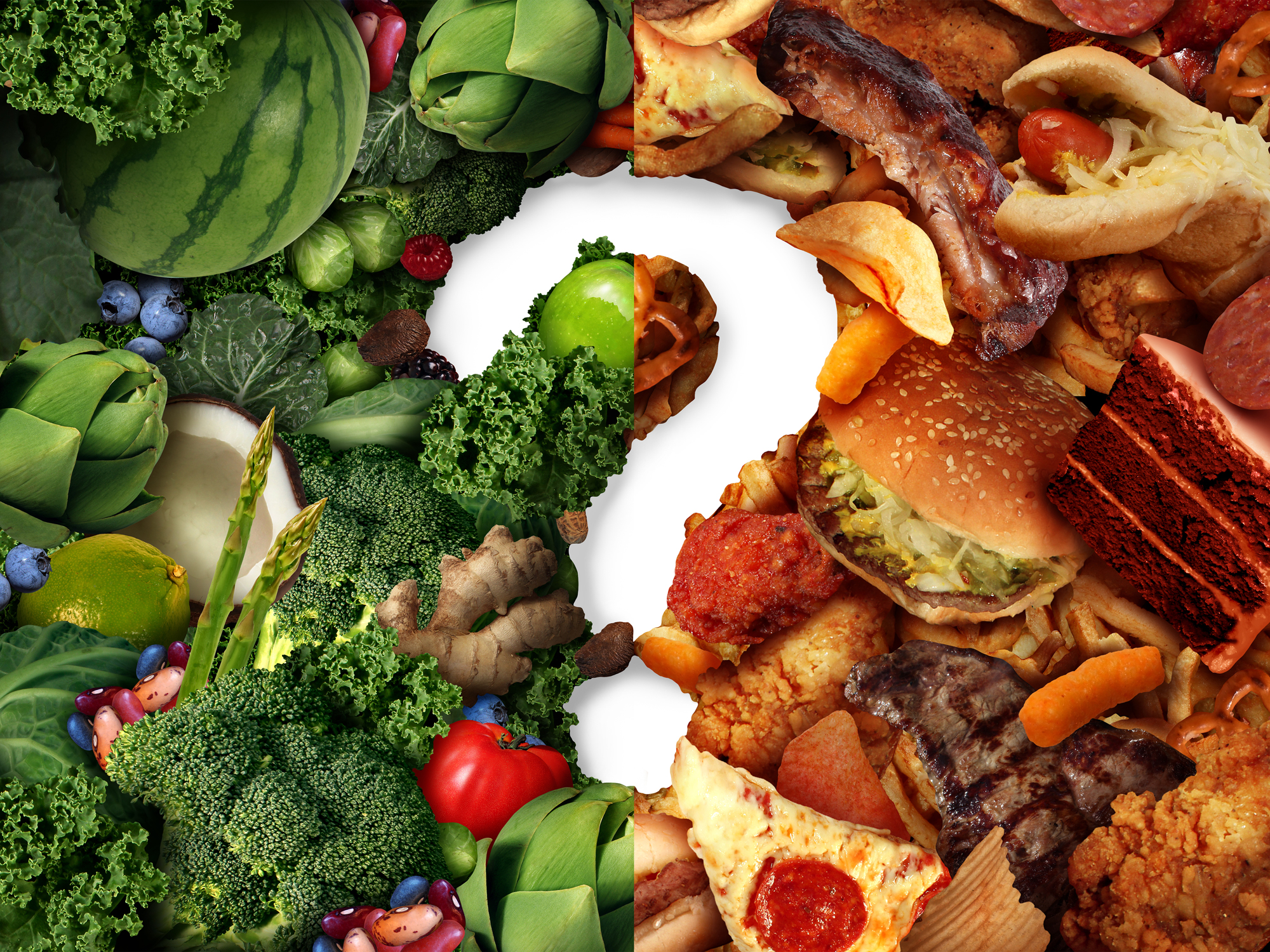Get Easy Health Digest™ in your inbox and don’t miss a thing when you subscribe today. Plus, get the free bonus report, Mother Nature’s Tips, Tricks and Remedies for Cholesterol, Blood Pressure & Blood Sugar as my way of saying welcome to the community!
Why some foods cause cancer and some don’t

By now, you know that your diet influences your cancer risk. In fact, scientists believe that 30 percent of all cancers could be prevented through proper nutrition.
The question is, what naughty nutritional habits are putting you in peril?
There’s a lot of research out there that can help you answer this question. Studies show certain foods are linked to a lower cancer risk (like strawberries, tomatoes and cruciferous vegetables) or a higher cancer risk (like processed meat). Certain diets are also linked to a lower cancer risk (like the Mediterranean diet).
But if the idea of keeping a running list of every food’s connection to cancer sounds daunting, there’s another effective way to adopt an anti-cancer diet — consider the energy density of everything you put on your plate.
Low-energy-density foods vs. cancer
Energy density is a measure of how many calories is in each gram of your food. If that sounds confusing, look at it this way…
Foods that contain a lot of calories per bite but not a lot of nutrients (like pizza, French fries, ice cream, etc.) are high-energy density foods, while foods that contain a lot of nutrients per bite and not a lot of calories (like vegetables, fruits, beans, etc.) are low-energy-density foods.
To put it even more simply, high-energy-density foods are usually processed foods, and low-energy-density foods are, for the most part, whole foods. Now, the reason you need to understand this concept is because the energy density of your food can influence your cancer risk.
Researchers from the University of Arizona recently did a study on how eating high-energy-density foods affects cancer risk in postmenopausal women, and they found that it causes cancer risk to go up by ten percent. Now, ten percent may not sound that high, but when it comes to cancer, every sliver of risk you can shave off helps.
The study included data on 90,000 postmenopausal women from the Women’s Health Initiative. Researchers used the data to analyze how dietary habits impacted the eventual development of cancer. They found that women who ate more energy-dense foods were ten percent more likely to develop an obesity-related cancer, like breast cancer, pancreatic cancer, endometrial cancer, liver cancer, stomach cancer, etc.
At first, you may think that makes perfect sense because people who eat energy-dense foods are more likely to be overweight or obese. But here’s the kicker…
The increased cancer risk wasn’t tied to weight. It only occurred in normal-weight women who ate a lot of energy-dense foods.
So basically, you don’t have to be overweight to put yourself at risk for obesity-related cancers, you just have to eat a poor diet. This diet then leads to metabolic imbalances that contribute to a higher risk of cancer. At least, that’s what researchers suspect.
Adopting a low-energy-density diet
If you want to make the switch to a low-energy-dense diet, here are some of the top foods to eat regularly:
- Dark, leafy greens
- Asparagus
- Green beans
- Broccoli
- Zucchini
- Carrots
- Tomatoes
- Mushrooms
- Cucumber
- Bell pepper
- Radish
- Citrus fruits
- Melons
- Berries
- Grapes
- Broth-based soups
- Fish
- Chicken or turkey breast
- Low-fat dairy
- Legumes
- Brown rice
- Whole wheat
- Oatmeal
Of course, it’s hard to avoid processed, energy-dense foods all the time. Maybe you want to enjoy a slice of pizza or an ice cream cone on occasion. If that’s the case, try to follow the 80/20 rule. That means eating healthy, whole foods 80 percent of the time and allowing yourself to splurge and eat those tempting treats 20 percent of the time.
And when you do succumb to less-than-healthy eating habits, follow up your splurge with a cup of green tea. A recent study shows it can counteract some of the negative effects of unhealthy eating, like brain fog and insulin resistance.
Editor’s note: Are you feeling unusually tired? You may think this is normal aging, but the problem could be your master hormone. When it’s not working, your risk of age-related diseases skyrockets. To reset what many call “the trigger for all disease” and live better, longer, click here to discover The Insulin Factor: How to Repair Your Body’s Master Controller and Conquer Chronic Disease!
Sources:
- “Energy dense foods may increase cancer risk regardless of obesity status.” — MedicalXpress. Retrieved August 17, 2017.
- “Obesity and Cancer.” — National Cancer Institute. Retrieved August 17, 2017.












